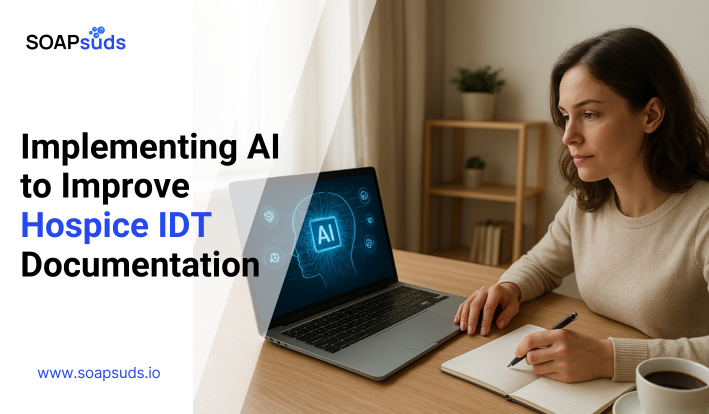How AI Medical Scribes Add $117k in Revenue/Year for Doctors
SOAPsuds team
Published: 9/18/2025
SOAPsuds team
Published: 9/18/2025

Applying artificial intelligence (AI) to improve hospice Interdisciplinary Team (IDT) documentation is reshaping how

You should regularly review the safety and compliance level of your speech-to-text software...

Meet Mark, a 51-year-old man admitted for a COPD flare-up. During his week-long stay, he...

Healthcare faces a significant gender equity challenge, as women working in the field often...

Visualization is a useful method for easing anxiety and can take various forms like calming

The introduction of EHR systems and their complex documentation requirements has caused a significant divide...
Clinical Notes
SOAP notes
DAP notes
AI medical notes